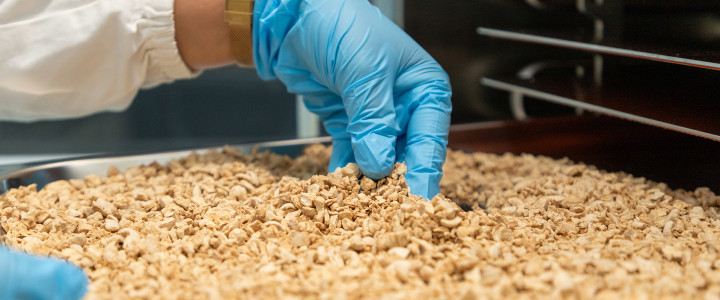By-products and food waste recycling and valorisation of alternative raw substrates
text

In the European Union, around 89 million tonnes of food are wasted yearly, at an estimated economic cost of EUR 143 billion. The accumulation of this residual biomass is the main detriment for the agro-food industry. Fruit and vegetable sole processing accounts for approximately 50% of generated organic by-products. Generally, agro-food by-products have limited commercial exploitation due to their intrinsic characteristics (high water content, rapid oxidation, susceptibility to enzymatic and microbial spoilage). Moreover, disposal entails a high environmental impact and significant costs. Faced with this scenario, the effective management of by-products and waste in the agro-food chain is an issue of great environmental and economic importance worldwide. Efficient and sustainable recycling processes are therefore much needed. To date, the main strategies for exploitation are direct use for animal feed, the production of a few derivatives (e.g. organic acids, enzymes and pectin) or disposal in combustion systems. However, these matrices are (still) potential sources of nutrients, fibres, chemicals, phytochemicals, and biogenic compounds (e.g. phenolic compounds) that are much more exploitable than they have been. Often, these residual resources require a transformation process to be exploited, which can result from the microbial activity of fermentation. Despite this, tailor-made microbial fermentation as a means of exploiting the inherent residual bioactivity of agro-food by-products is, although promising and versatile, still under-exploited. Furthermore, there is a growing interest in the definition of new supply chain models based on alternative food sources, such as alternative protein feedstocks. Due to their inherent chemical and functional properties, using such raw materials as ingredients in food and/or beverages requires the application of tailor-made fermentations.